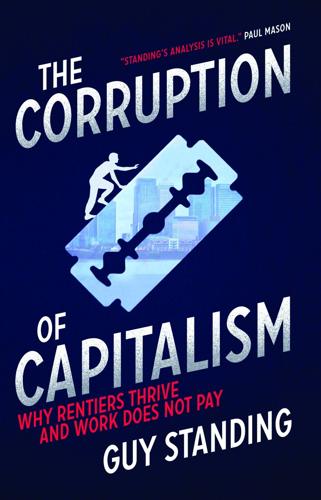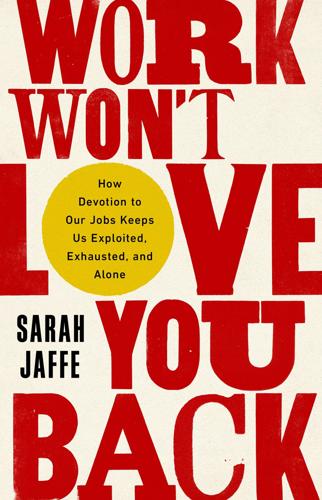
Basic Income And The Left
by
henningmeyer
Published 16 May 2018
At this low rate of allowance, people will still have to go out and work on the labour market. The basic income then wages and working conditions. Progressives can never be happy with the current state of affairs and the dismantlement of social and economic rights. becomes very rapidly a simple wage subsidy or an After the Second World War, the ILO was able to open door to ‘mini jobs’. Can this be a progressive issue its ‘Declaration of Philadelphia’. In it, member solution? states declared that ‘labour is not a commodity’. And A last point on which van Parijs does not touch but one that is very important is that our current social 24 indeed, thanks to social struggles and the then emerging welfare states, the power relations between labour and capital changed.
…
But it is a blun‐ heavily subsidised, is at the heart of the Nordic derbuss which would be hugely expensive and inef‐ welfare states — not there to be bought by a child‐ ficient: an obvious effect would, perversely, be to care ‘consumer’ with his/her universal basic income. expand the arena of ‘mini-jobs’ offering low pay and Active labour market schemes, which assist workers with low productivity, for which universal basic to make the transition from obsolete skills to those income would simply provide a wage subsidy to in demand, safeguarded by high replacement-rate poor employers. The more obvious trajectory to benefits, are another key feature particularly of follow is to seek to de-commodify labour by proper Denmark’s famed ‘flexicurity’. 64 65 Passing Fad Seen in that light, universal basic income is not so much an idea whose time has come as a fad which 10 will pass for lack of public traction.

Brave New World of Work
by
Ulrich Beck
Published 15 Jan 2000
An eyes-closed policy (or non-policy) was taken to absurd lengths by the Kohl government in Germany, but it is well enough known that breaches in the dyke cannot be repaired in that way. Precisely when nothing is happening politically, a great deal happens out there in the world. Thus, within ten years the number of so-called marginal employees soared from 2.8 million to 5.6 million. The consequences are plain to see. Where mini-jobs without social obligations are no longer the exception but the rule, the old social security system is giving up the ghost. Eyes-closed policies condone and accept an insidious move away from the welfare state. Anyone who ‘deliberately’ bets on full employment soon turns to a politics of criminalization, directed against ‘swamping’ by ‘deviant’ forms of employment.
…
The whole matter is obviously jinxed, because apparently identical kinds of work conceal opposite realities that no one is able to reduce to a common denominator. In catering, office cleaning and the retail trade, temporary work is by now largely the rule. To eliminate it is to endanger that whole area of the economy, and with it the jobs that one supposedly wants to create. According to one of the plans devised by the labour ministry, holders of mini-jobs will pay more than DM300 into the health insurance fund – but only if they are already insured anyway (through the family, for example). If they are not so insured and earn between DM300 and DM620, the employer must pay his bit into the health fund – but no insurance cover results from it. The same applies to unemployment insurance.

The Economics of Belonging: A Radical Plan to Win Back the Left Behind and Achieve Prosperity for All
by
Martin Sandbu
Published 15 Jun 2020
Its labour market reforms in the early 2000s were intended to remove rigid rules and reform benefits that were thought to keep people out of work. The reforms were successful insofar as they increased both growth rates and employment. But average wages did not move—and actually fell for the lower paid. Temporary work, meanwhile, became more frequent, as did so-called mini-jobs, or very part-time positions. As a result, the bottom 40 per cent make the same as or less than twenty-five years ago (after adjusting for inflation), and the number of working poor has doubled.10 Unionisation, too, has fallen significantly, which seems to be behind the long wage stagnation.11 If Germany was the model for some of the southern European countries that reformed their labour markets under pressure from the debt crisis a decade later, it is not a big surprise if they achieve similar results.12 Despite often being seen as an example of an inclusive economy both in Germany itself and by others, the German economy now creates income inequality to equal that of the United Kingdom and the United States before taxes and redistribution—to the point where the German economist Marcel Fratzscher has said the old Germany social market economy that was built on the ruins of the Second World War no longer exists.13 Indeed Germany, too, has produced groups of left behind—those channelled into the precarious rungs of the labour market after the early-2000s reforms, as well as large parts of the former East Germany.

The Precariat: The New Dangerous Class
by
Guy Standing
Published 27 Feb 2011
Part-timers, often women, who step off a career ladder, may end up more exploited, having to do much uncompensated workfor-labour outside their paid hours, and more self-exploited, having to do extra work in order to retain a niche of some sort. The growth in part-time jobs has helped conceal the extent of unemployment and underemployment. Thus, in Germany, shifting more people into ‘mini-jobs’ has maintained the illusion of high employment and led some economists to make foolish claims about a German employment miracle after the financial crash. Other categories overlapping with the precariat are ‘independent contractors’ and ‘dependent contractors’. There is no equivalence with the precariat here, since many contractors are secure in some respects and have 16 THE PRECARIAT a strong occupational identity.

The Corruption of Capitalism: Why Rentiers Thrive and Work Does Not Pay
by
Guy Standing
Published 13 Jul 2016
To compound the advantage, in 1998 German trade unions made a ‘concession bargain’ with employers and government that held down wages. Then, in 2004, the Social Democratic government of Gerhard Schröder introduced the Hartz IV welfare reform, which cut unemployment benefits and imposed conditions that forced many to take low-paid ‘mini-jobs’. This put more downward pressure on wages, especially at the lower end, so increasing inequality. Real wages were static or fell from the early 1990s onwards. Average wages were lower in 2015 than in 1990, although national income per person had risen by nearly 30 per cent. In Britain, too, wages have been stagnant for years.

Rewriting the Rules of the European Economy: An Agenda for Growth and Shared Prosperity
by
Joseph E. Stiglitz
Published 28 Jan 2020
The optimal policy may accordingly entail using both instruments, as the United States does, though its minimum wage is far below a living wage, and its wage subsidy via tax credit is too small to bring it up to a living wage. IMPROVING WORKER CONFIDENCE Regulate Precarious Jobs Scarcity of good jobs in Europe has forced many to enter precarious work arrangements, which includes part-time jobs, mini-jobs, and on-call and zero-hours contracts,§ to mention some of the new forms of employment (Box 9.1). In some cases, changes in technology have facilitated these new arrangements; whatever the efficiency benefits of the technological changes, they all have distributive consequences of which we must be mindful.

Stakeholder Capitalism: A Global Economy That Works for Progress, People and Planet
by
Klaus Schwab
and
Peter Vanham
Published 27 Jan 2021
The union, which had typically been weak in the family-owned enterprise, grew stronger, and management took on a more constructive approach to its Works Council going forward. In Germany, similar societal and corporate stresses around economic growth, employment, and the integration of the former East German states ultimately led to a new social pact in the early 2000s, with new laws on co-determination, “mini jobs,” and unemployment benefits. But the new equilibrium was for some less beneficial than before, and even though Germany afterward returned to a period of high economic growth, the situation soon got more precarious for many other advanced economies. A first warning sign came from the dot-com crash in late 2000 and early 2001, when America's technology stocks came crashing down.

Stakeholder Capitalism: A Global Economy That Works for Progress, People and Planet
by
Klaus Schwab
Published 7 Jan 2021
The union, which had typically been weak in the family-owned enterprise, grew stronger, and management took on a more constructive approach to its Works Council going forward. In Germany, similar societal and corporate stresses around economic growth, employment, and the integration of the former East German states ultimately led to a new social pact in the early 2000s, with new laws on co-determination, “mini jobs,” and unemployment benefits. But the new equilibrium was for some less beneficial than before, and even though Germany afterward returned to a period of high economic growth, the situation soon got more precarious for many other advanced economies. A first warning sign came from the dot-com crash in late 2000 and early 2001, when America's technology stocks came crashing down.

Work Won't Love You Back: How Devotion to Our Jobs Keeps Us Exploited, Exhausted, and Alone
by
Sarah Jaffe
Published 26 Jan 2021
In the book Where Bad Jobs Are Better , researchers Françoise Carré and Chris Tilly studied retail work in Denmark, France, Germany, the Netherlands, the United Kingdom, and the United States and concluded that while conditions varied by country, “in general, retail jobs have gotten worse across all six countries over the past two decades,” with women and young people overrepresented, and lower-than-average wages. German workers, who had better training, got their schedules six months in advance, and had union protections, nevertheless were increasingly in “mini-jobs” with lower pay and fewer benefits. French cashiers got to sit down on the job, and stores closed earlier in the day and on Sundays, yet French retail workers too were tracked for their scanning speed. In Mexico, Walmart is unionized, but the workers complained of excessive unpaid overtime. 35 Even without the union protections that workers in other countries enjoy, retail workers in the United States have managed to push back some of their worst conditions.

The Default Line: The Inside Story of People, Banks and Entire Nations on the Edge
by
Faisal Islam
Published 28 Aug 2013
Good suggestions from all over Europe, including England, contributed to our deliberations.’ The ‘Hartz IV’ reforms for the country were focused more on hiring rather than firing. Generous welfare payments for the unemployed (three-fifths of last wage) were slashed to a basic flat rate of €345 per month. Massive tax incentives were created for ‘mini-jobs’ – low-paid, often temporary work. Hartz promised that unemployment would halve. Initially it went up, over the 5 million level only previously seen in the Weimar Republic. The reforms were deeply unpopular, and led to Schröder’s narrow election defeat in 2005. Schröder was fired by the electorate – in part, for making his compatriots easier to fire.